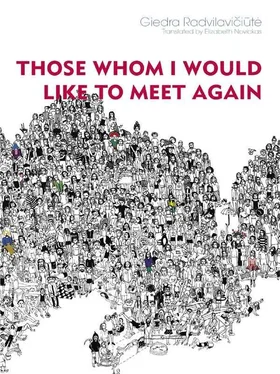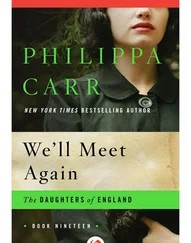On the other side of the Aušros Gate, a good deal lower down, there was once a cafeteria where my mother did an internship while she was studying at the Technical School of Commerce. It’s not there anymore, but you can walk by the spot. In the cafeteria it smelled of ordinary vegetables — boiled potatoes, beets, carrots — and aluminum pots clattered there all day long. One hot spring, the old cook, Mirikas, who’d been assigned to the girls, taught them how to make real lemonade. You need only six lemons in all. Plus sugar and water. You peel the skins off of three lemon halves and cook a syrup out of them with sugar. Then you mix this with the juice squeezed out of the remaining lemons and dilute it a bit more with boiled water. You must drink it with ice. (Preferably crushed.) The glass may be decorated with lemon slices. (Real orangeade, as far as I know, is boiled out of bitter oranges as well as lemon. And is diluted with rose water, which we never had, and still don’t.) I suppose it’s only really in the novels of Southern authors from the US that one can buy lemonade like that from little wagons on the side of the road — Eudora Welty’s fiction, for example (and maybe Faulkner’s). But Mirikas taught the girls many other food-preparation tricks as well. Unbelievably simple, many of them. For example, if you want your soup to be thick, you shouldn’t slice the potatoes, but boil them whole and then break them into pieces with a knife or fork. For the rest of her life, Mama would only sprinkle in her spices at a certain moment, a few minutes before the cooking was finished, and she never covered the pot afterward.
The girls working at the cafeteria, since they didn’t have much else to do, took up teasing Mirikas a bit. Mama started calling him from a telephone booth almost every day, during the lunch break. She’d talk with a handkerchief over the receiver. “I’ve been watching you for almost a year now. Today you went to work looking sad again. I eat lunch at the cafeteria and I see you through the kitchen door, always surrounded by beautiful women.” The idea was to make it seem as though a stranger had fallen in love with him, someone who worked nearby, maybe even across the street — someone who was too shy to approach him directly.
Mirikas got a haircut. Started going to work wearing a different plaid shirt every day. On his way, he would look into the shop windows, then still rare in that area. The girls brought a record player to the cafeteria kitchen so it’d be even more cheerful, and constantly listened to a song whose refrain was “Ding, dong, don’t be wrong …” My mother, “in character,” arranged to meet Mirikas in the plaza at the Art Museum, purposely picking a place where anyone would be visible from a good distance away. Mirikas waited for his secret admirer for an hour. The girls were congregated on a bench, watching. They ate three servings of ice cream each, but didn’t approach him. And thereafter stopped calling. Now Mirikas began showing his age, all at once; he even became gaunt. He orchestrated all the food prep sitting down, whereas earlier he’d run around the kitchen with the bottom edges of his long white coat stuck in his pockets to keep them from flapping around. A few months later, the old man died. By then, Mama was working in a restaurant in the town where I would be born. A friend from school called and said there was a rumor going around Vilnius that the old man had hanged himself. The public story was that he’d died from complications related to the flu, but various details contradicting this circulated among the girls: Supposedly, a lacquered metal box decorated with rye fields and Russian troikas had disappeared from Mirikas’s locked room. A nephew apparently had intentions on his apartment. When the old man died, an anonymous person called the police immediately. Actually, on the last day of my mother’s internship, Mirikas had arranged a farewell party for the girls. He made beef stroganoff and lemonade. He invited Mama into the cloakroom and presented her with an antique engraved metal teapot without a lid. Her friends said it was because she was the prettiest of the group, but I know Mama thought otherwise. (I wouldn’t be at all surprised if the nephew had found a record of that “Ding, dong” song in Mirikas’s room after he died …)
I was now standing in Didžiosios Street, only as far the Rimi supermarket. All these memories — or maybe it was the brandy — had dried my mouth out. How had I managed to finish off the brandy I’d brought along, just between the railroad and here? I kept taking sips from the little bottle, keeping it pressed inside my “Don’t Leave Home Without It” bag. I remembered the cat was out of kitty litter. And the kid had asked for wafers. (Two packages. Chocolate.) There was nothing but foreigners in the store, going downstairs into the basement. Perhaps some event was going on? When Mama was a student, the Moscow movie theatre had stood here. Later it was renamed the Helios. Next, I’m sure there will be a beachhead of the Armani empire here. The interior in nothing but black and white. With orchids. (Likewise white.)
I inevitably turn into a klutz in big stores. In the vegetable section, I lost my scarf. And then, I sat down on the plastic carriers stacked up next to the front door and pulled up my skirt; I needed to shake a pebble out of my shoe. The pebble fell out, but the run in my stocking was already all the way up to the back of my knee. I pulled the extra pantyhose out of my bag. I moved my face up close to the mirrored wall, so close that the sweat on the tip of my nose left a mark. I felt that I looked terrible and needed to touch up my makeup a bit. I didn’t know that the mirrored wall was two-way. Just like in police movies. A mirrored door opened up and a security guard appeared. He was looking right at me: I imagined the crime blotter in the next day’s paper—“Confronted by the officer, there was a verbal altercation, followed by a physical one.”
Rattling keys between his fingers, the guard asked, “Madam, you’re waiting for someone?” “I’m waiting,” I answered, “For a stroke, like my brother had. And diabetes — like my sister.” And I thought, if they want to take the kid away from me, I’ll fight them tooth and claw. But he just sent me on my way. Stumbling at nearly every step, I headed out of the supermarket back to the street. It was almost dark. Even though the Old Town gets dark more slowly than over there, past the railroad tracks. A young woman without a foot asked for money. I didn’t give her anything. At the newspaper stand a slightly crumpled Stern magazine featured an interview with Elfriede Jelinek. That was the first time I saw her in furs. In the dark, that new material they put on the sidewalks, galvaniced steel, looked really slick, but it was just a little wet. Before he retired, my grandfather worked in a galvanizing shop at a factory. He would lower heavy parts into huge, stinking pots coated in green slime, covering them with a new layer of metal. Sometimes he’d bring in Grandmother’s worn-out knives and forks. After a few years the utensils would start peeling again, like chocolate-wrapper foil.
“You’re the one who always tells me not to forget the keys, so I can unlock the door myself,” my daughter said as she opened the door for me. “The upholsterer hasn’t covered the chair yet,” she continued. “He was here, but he left again. For cigarettes. Oh, and R  ta called, and Books from Lithuania , and then some woman.”
ta called, and Books from Lithuania , and then some woman.”
I felt like I was going to puke at any moment, but I started making some soup for the upholsterer. That was part of the deal — while he was working, there would be soup. His eighteen-year-old son had multiple sclerosis. He was already bedridden, but the process, thank God, was moving very slowly. Every day, on his way home from work, the upholsterer would rent a couple of thrillers for his son at the Old Town video store. We can all understand the urge to spoil a sick child. I saw something similar in Chicago. The yearly military air show was going on. The newest fighter jets were flying over Lake Michigan. First the plane would appear, and only when it disappeared again over the horizon would you hear the sound. The pilots took their jets down to only a few hundred feet above the water, and the lake would hollow out in a shining ring around them. Next to me, on the street, amid thousands of people, sat a boy in a wheelchair. An IV was attached to his arm. His parents had brought him there. The boy’s face was the same color as the sand. But his eyes, watching the airplanes, were happy.
Читать дальше

 ta called, and Books from Lithuania , and then some woman.”
ta called, and Books from Lithuania , and then some woman.”










